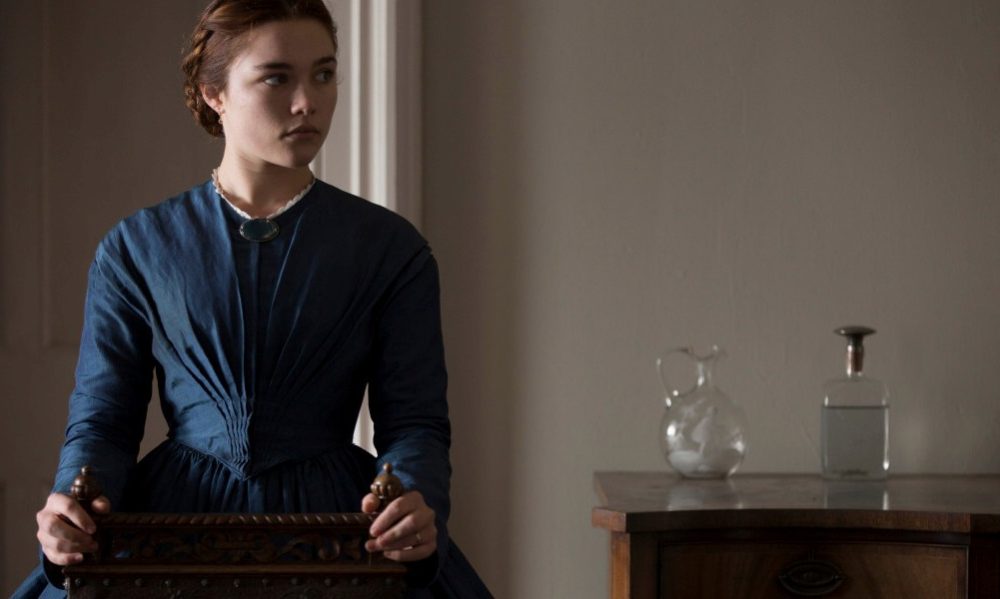Lady Macbeth

Considered to be a feminist film, William Oldroyd’s Lady Macbeth certainly has such elements. Central character Katherine (Florence Pugh) is defiant and rebellious toward her rigidly domineering husband (Paul Hilton) and father-in-law (Christopher Fairbank), refusing to succumb to the stifling atmosphere of 19th century England. Having been purchased from her father like a slave, her rage is understandable, but her insurrection leads to an act so repugnant that she elicits horror. Whether she is pushed too far by the mores of her time, perhaps driven insane by them, or is simply by nature a self-centred sociopath is not certain: but her behaviour extends beyond feminism to psychotic violence. Opening with a scene of strict religious fervour, the movie’s tone progresses from a state of staid piety and rigid formalism to chaotic rebellion and beyond. The story becomes ever more surprising, and then shocking as it unfolds.
Borrowed from Nikolai Leskov’s classic, the ambiance of Lady Macbeth distinctly invokes Charlotte Brontë’s Jane Eyre and Emily Brontë’s Wuthering Heights, whose main character is also a Catherine. Wuthering Heights’ swarthy, melancholy Heathcliff resembles Katherine’s lover in Lady Macbeth, the rough, irreverent stable worker, Sebastian (Cosmo Jarvis). Her frequent walks across the wild, romantic Northumberland moors evoke the novel’s Yorkshire moors. A sense of moody, gothic passion pervades, enlivened by Katherine’s maniacal ruthlessness. Her frustration with her cold, brutal husband leading her to seek comfort in the arms of a lusty hired hand also channels DH Lawrence’s Lady Chatterley’s Lover.
Cinematographer Ari Wegner imbues his outdoor shots with romantic, misty hues and his interiors have the beauty and symmetry of Vermeer paintings, with each frame stunningly designed. The house’s quiet formality is strongly presented through scenes of dreary stillness and in Katherine’s strait-laced clothing – both of which exude a deathly atmosphere distinctive of old stately homes where tradition and lifestyle of the manor prevail.
Pugh is brilliant as an insubordinate young woman who spits at convention then reveals a monstrous moral vacuity, as if only an insane woman could defy the oppression of her time. Jarvis convincingly exhibits rugged spontaneity and clueless passion under this woman’s spell, until even he is shocked by her actions.
With superb direction and cinematography, Lady Macbeth is a fascinating portrait of a clash between austere 19th century patriarchal traditions and volcanic, youthful appetites; altogether, it’s a radical thought-provoking work that will inspire conversation.
Catherine Sedgwick
Lady Macbeth does not have a UK release date yet.
For further information about the 60th London Film Festival visit here.
Read more reviews from the festival here.
























Facebook
Twitter
Instagram
YouTube
RSS